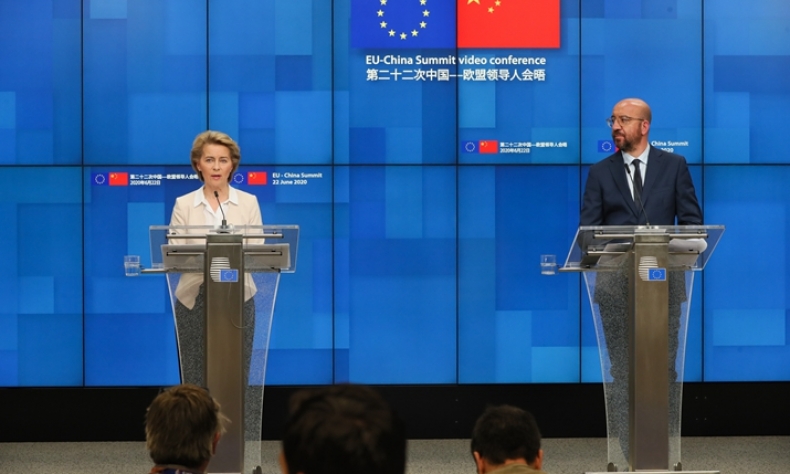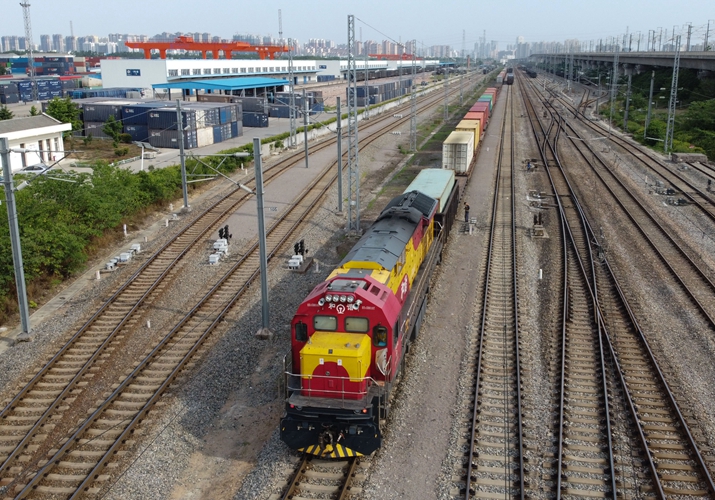EU recognizes China’s role in fixing global issues

The pandemic, despite some misunderstandings between China and the EU due to natural tensions in response to the virus that caught everyone by surprise, also showed solidarity that became evident when needed.
The beginning of the German presidency of the EU in July constitutes good news for Europe-China relations. German Chancellor Angela Merkel has always employed a pragmatic approach vis-à-vis China, which is how ties between the two countries have strengthened for approximately 15 years. And now, a few months before her pre-announced departure from politics, she seeks to focus on China at the EU level.
Her initial idea was to invite Chinese leaders—President Xi Jinping and Premier Li Keqiang—to a summit with all EU member states in Leipzig but the novel coronavirus disease (COVID-19) pandemic put her idea on hold. Despite this setback, Merkel’s solid and successful record might function as a good inspiration for talks between the EU and China.
The virtual EU-China summit held on June 22 confirmed the existing potential. Europe-China relations have been relatively constructive for years. The two sides have managed to make a lot of progress on several issues, find areas of joint interest and manage disagreements. The title of the EU press release issued after the video conference, EU-China Summit: Defending EU Interests and Values in a Complex and Vital Partnership, is indicative.
As High Representative of the EU for Foreign Affairs and Security Policy Josep Borrell acknowledged in a tweet: Collaboration is critical to tackle today’s immense global challenges. Borrell is determined to defend European interests but does not consider China a threat in international affairs.
The pandemic, despite some misunderstandings between China and the EU due to natural tensions in response to the virus that caught everyone by surprise, also showed solidarity that became evident when needed. China received medical assistance from European countries and this was reciprocated when Europe faced its own crisis.
The Group of 20 Extraordinary Leaders’ Summit in March has already shown that China and several European countries desire to find common ground. COVID-19 was an issue discussed in the virtual China-EU meeting. Both sides can join forces to make a newly developed COVID-19 vaccine available to all. Xi has already committed at the 73rd World Health Assembly in May that any vaccine developed in China will be made a public health good. The two players also need to work together to mitigate economic consequences.

Shared goals
Both the EU and China uphold multilateralism. China supports the process of European integration while the later understands that a multilateral world order cannot be successfully built without the former. Coordinated actions in dealing with climate change deserve special attention when environmental protection has become a universal priority.
Beyond the Paris Climate Accord, the EU and China have also agreed on the central role the World Health Organization should play in handling the COVID-19 pandemic. The Chinese proposal for joint actions to guarantee world peace and stability, global prosperity and governance also provide a good way forward.
Moreover, the EU and China appear determined to conclude the Comprehensive Investment Agreement in 2020, which aims to open their markets to each other’s investors. Negotiations are tough because China sees a rising number of obstacles in rolling out its Belt and Road Initiative whereas the EU is asking for deeper access to the Chinese market to better defend its business interests.
Notwithstanding the difficulties, the EU Chamber of Commerce in China noted several positive outcomes of the online summit. These include the commitment to sign an agreement on geographical indications, which will see the EU protect 100 Chinese geographical indications in the EU and vice versa, and continued discussion on World Trade Organization reform and upgrading.
The Chinese Government is focusing on the opening-up and reform process that potentially gives more opportunities to Europe. On its part, the EU needs to be hospitable toward Chinese investors in its new economic policies. If Chinese investors do not feel welcomed in the EU, the opportunity for new business synergies will be lost. This is a serious risk that needs to be taken into account by the EU.
Strengthening the European legal framework is a completely different thing from the discouragement of potential investors. It is questionable whether companies from European countries would be interested in undertaking projects similar to the ones realized by Chinese businesses.
Understanding building
While the EU places emphasis on the protection of European values in its relationship with China, China respects it as a fair point and expects a similar response. There is no one-way street. China, for example, has asked for clarifications on the “systemic rival” label the EU gave it in a strategic outlook paper it issued last year.
Borrell’s explanation is that the EU and China do not have the same political system; while each defends its own political system, there are differences in interests and values.
The interpretation is that it is a fact of life that countries have to cooperate because it is unimaginable, for example, addressing climate challenge without China’s strong cooperation. You cannot build a multilateral world without China’s effective participation.
Cooperation is possible among partners with different governance models as long as one side does not seek to impose its will on the other. The more the EU and China talk, the better they can understand each other. The Europe-China partnership is a critical aspect in today’s world and is acknowledged as such. Continuous rounds of dialogue will yield results if they are conducted in good faith. The EU and China may not agree on everything but they can accommodate different interests and proceed together.
More time is needed for this. Following a delay of several weeks because of the novel coronavirus, the China-EU Summit was the first opportunity for the new European leadership to engage in relevant talks with China.
President of the European Council Charles Michel and President of the European Commission Ursula von der Leyen took office in the last months of 2019. Von der Leyen, in particular, hopes that the EU would be able to take some concrete steps in geopolitics. Although the pandemic has altered her priorities, she remains committed to the objective.
The EU is a political and economic union made up of 27 member states and its common policies thus entail special characteristics. While before 2017 Europe largely relied on the U.S., it is now taking some steps alone. Before the outbreak of COVID-19, for instance, it defied U.S. pressure and refrained from excluding Chinese telecom equipment manufacturer Huawei from 5G tenders. This is an unprecedented development for European standards.
The question is whether the EU will be able to successfully navigate between the U.S. and China and constitute a powerful and independent pole in international affairs. This will require an ability to cooperate on some themes with the U.S. and on others with China and occasionally play a mediating role or find midway solutions.
The EU’s newly proposed EU-U.S. dialogue on China will test this ability. Safer conclusions, however, will be reached only after the U.S. presidential election in November. China cannot but adopt a wait-and-see approach under the current circumstances.
The author is director of the EU-China Program at the Centre International de Formation Européenne.
 Facebook
Facebook
 Twitter
Twitter
 Linkedin
Linkedin
 Google +
Google +










